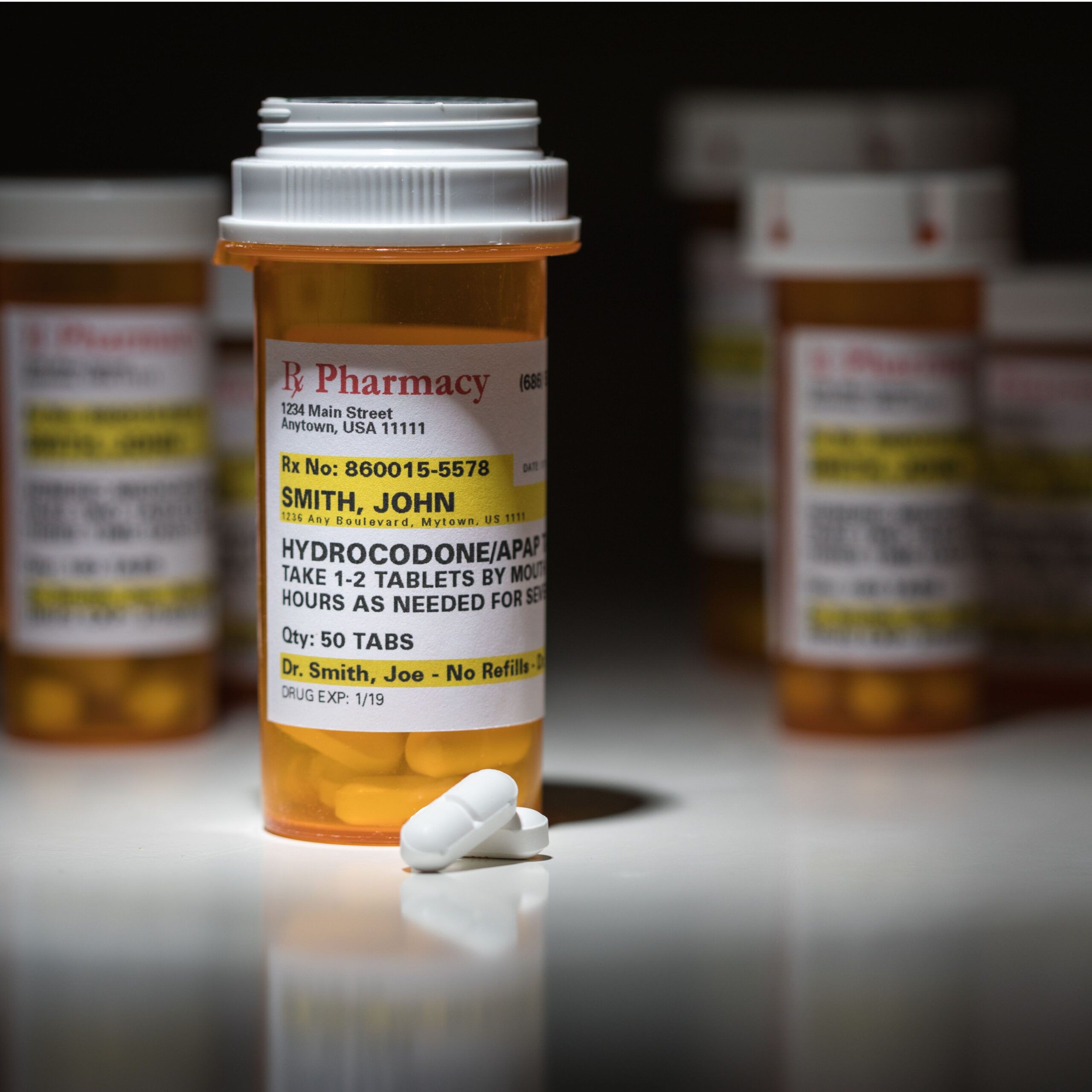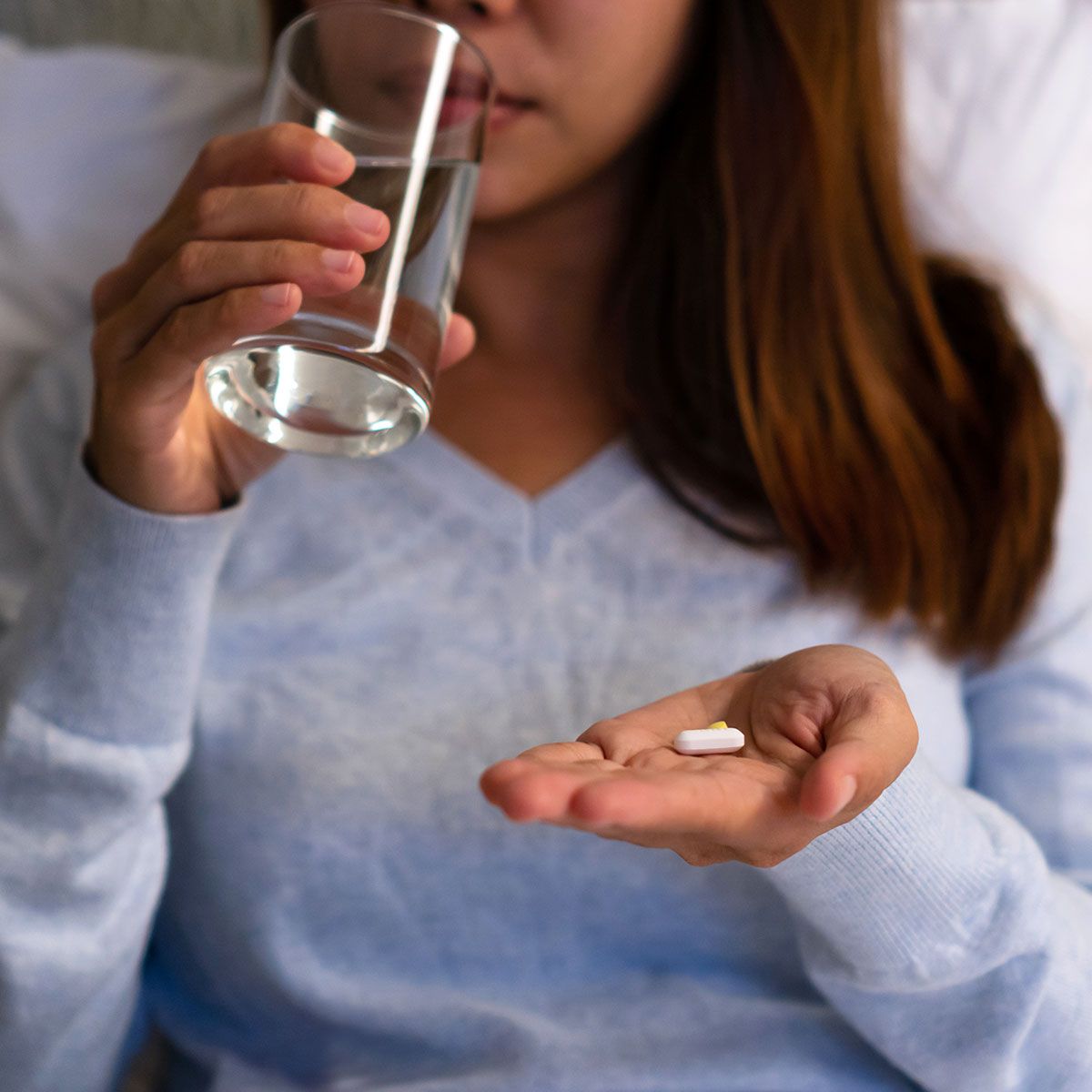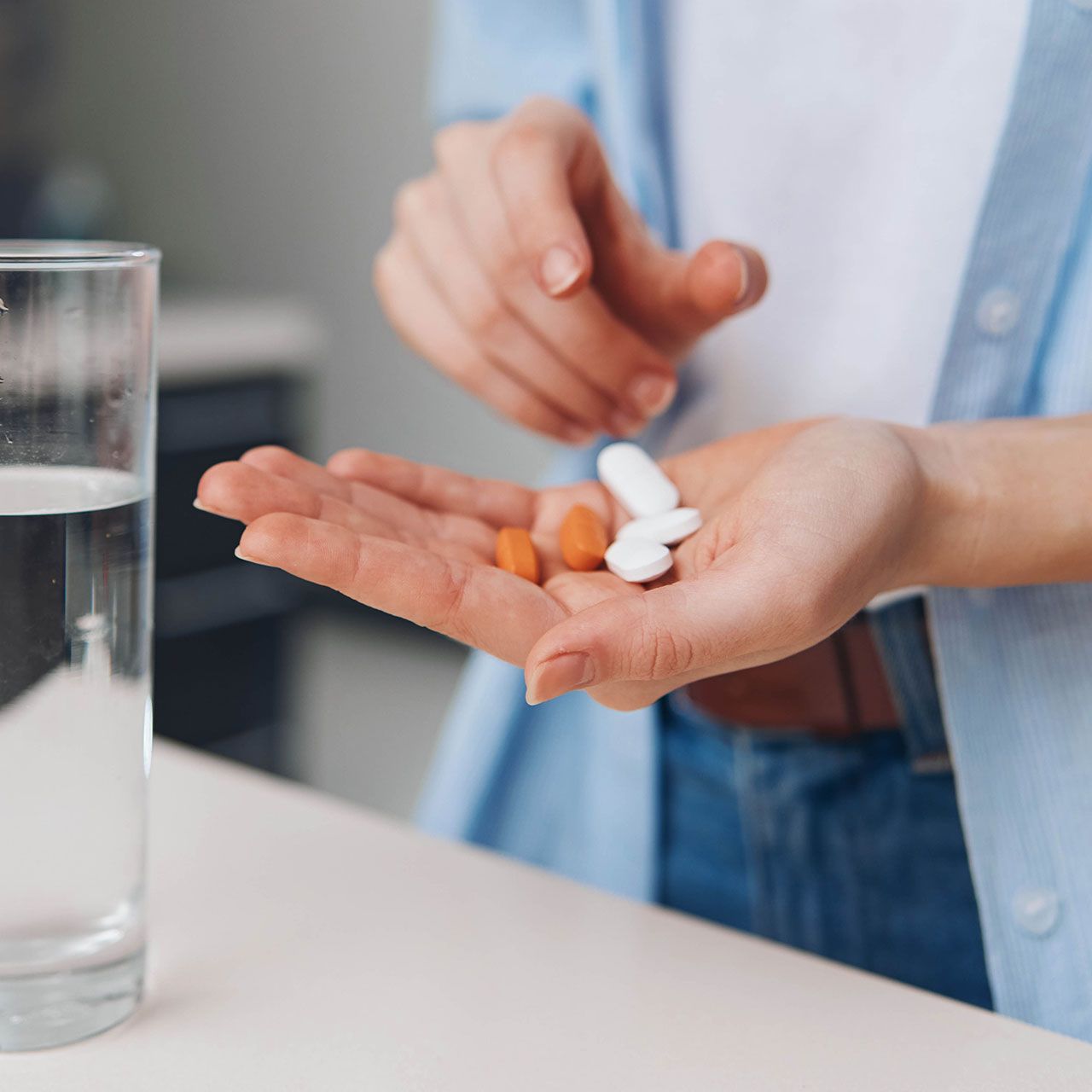Although oftentimes necessary and typically perfectly safe, the benefits of medications and supplements do not come without potential risks. It’s always important to be aware of the potential side effects and safety issues at hand, whether that’s a negative interaction with another medication you’re taking, a health issue that arises with high dosages, or any number of downsides. One common risk to consider is dependence, which can come into play with many commonly prescribed medications as well as a few supplements.
To shed some light on a few supplements and medications that could result in dependence, we spoke to health expert Dr. Simran Shamanur. She educated us on several varieties to be careful with, from opioids to weight loss supplements. Find all of her expert insight below.


1. Opioid Painkillers
Opioids like oxycodone, hydrocodone, and morphine can quickly lead to dependence and addiction. In addition to causing side effects such as drowsiness and constipation, Dr. Shamanur says they also pose the risk of overdose. For this reason, it's important to be extremely careful when taking these medications. "Use them only as prescribed by a doctor, and for the shortest time possible," she instructs. "Always look for alternative pain management methods like physical therapy or over-the-counter pain relievers."

2. Benzodiazepines
Following opioids, benzodiazepines are another potentially addicting option to be wary of. Prescribed for anxiety and insomnia, medications like Xanax, Valium, and Ativan can be habit-forming. Abrupt withdrawal from benzodiazepines can be dangerous, making medical supervision essential. Dr. Shamanur suggests using benzodiazepines only for short-term relief and considering non-pharmacological approaches such as cognitive-behavioral therapy (CBT) for long-term management of anxiety or insomnia. There are many other natural ways to manage stress levels.

3. Stimulants
Medications like Adderall and Ritalin, often prescribed for attention deficit hyperactivity disorder (ADHD), can be misused for their energizing effects, leading to dependence. Dr. Shamanur advises using these medications strictly as directed by a healthcare provider and avoiding sharing them with others. "Regular check-ups with a healthcare provider are crucial," she adds. Noted!

4. Sleep Aids
Over-the-counter sleep aids can potentially lead to dependency and may lose effectiveness over time, necessitating higher doses. Dr. Shamanur recommends exploring non-pharmacological methods for addressing sleep issues, such as maintaining a consistent sleep schedule, creating a conducive sleep environment, and avoiding caffeine before bedtime. Additionally, there are several herbal supplements to consider in place of more habit-forming sleep aids.

5. Diet Pills and Weight Loss Supplements
Weight loss supplements may seem like a quick fix if you're looking to shed a few pounds, but they can come with many downsides. These supplements can be addictive and on top of this may not even yield effective results. Some may even contain harmful substances that pose serious health risks. "A healthier approach to weight loss includes a balanced diet and regular exercise," Dr. Shamanur says. "Consult a healthcare professional before starting any weight loss supplement."

Avoiding dependence on medications and supplements
Dr. Shamanur underscores several strategies to minimize dependence on medications and supplements:
- Consult a Healthcare Professional: Seek guidance from a doctor or pharmacist before starting any new medication or supplement.
- Follow Prescriptions Carefully: Adhere strictly to the prescribed dosage and duration of medications.
- Be Aware of Risks: Understand the potential side effects and risks associated with any medication or supplement.
- Explore Alternatives: Consider non-drug treatments and lifestyle changes as alternatives to medication whenever possible.
- Monitor Usage: Stay vigilant about the duration of medication or supplement usage and discuss any concerns with a healthcare provider promptly.
Ultimately, it's crucial to approach medications and supplements with caution, being mindful of the potential for dependence. By taking proactive steps to mitigate risks, you can work to keep your body and brain healthy and safe.
READ MORE: Combining These Supplements Is Actually So Dangerous, Doctors Say


























